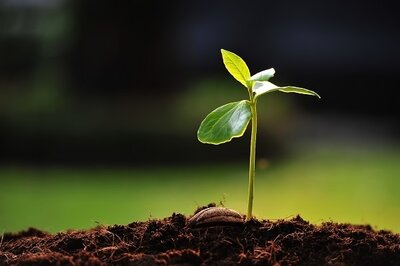Top tips for sowing vegetables

Most vegetables are raised from seed, making them fantastic value – for the price of a single lettuce bought in the shops, you can buy a packet of seed to grow 1000. That's reason enough to grow your own: but you'll find sowing seed is also hugely satisfying as the first tiny sprouts appear, with their promise of bumper crops to come.
Growing from seed is straightforward but there are a few things to remember as you crack open that first packet and get sowing in . Here are our top tips for seed-sowing success:
- Use good-quality seed compost: you'll find sterilised (so disease-free) and finely-textured John Innes formula seed composts in our garden centre.
- Prepare seedbeds well if you're sowing direct outside: remove weeds and large stones and rake soil thoroughly so it's the texture of breadcrumbs.
- Don't sow too thickly: overcrowded seedlings are more prone to fungal disease and struggle to compete for water and nutrients, so space seed well apart.
- Sow at the right depth: as a rule, bury seeds to twice their diameter – for small seeds, that's a light sprinkling of compost.
- Follow the instructions on the seed packet: they're mines of information, with handy tips and guidance on spacing, sowing depth and germination temperatures.
- Cover pots and trays after sowing so the seeds never dry out: clear polythene secured with an elastic band or a clear propagator cover does nicely.
- Water drills before sowing: if the weather is dry, really drench the drill before you sow, so seeds are sitting on damp soil from the start.
- Wait till it's warm enough as seeds have specific temperature ranges within which they germinate. Most need at least 10°C though carrots and lettuce come up a little cooler, at 7°C
- Use tap water for seedlings under cover, as saved rainwater often carries water-borne fungal diseases.
Please ask the staff in our garden centre in for more information and advice about tips for sowing vegetables.
